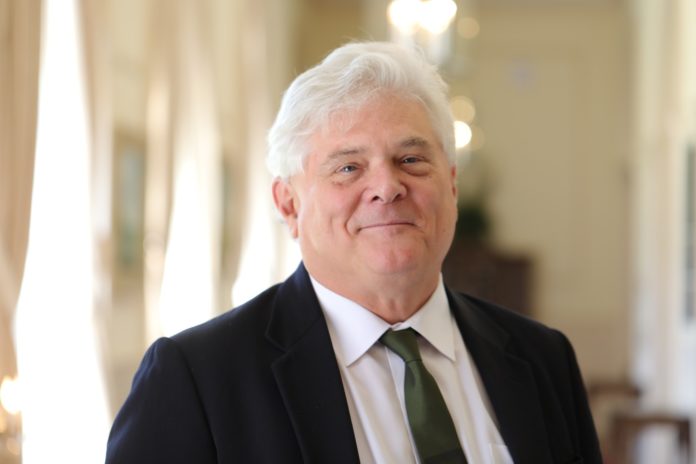
The Baylor Libraries encourages students, faculty and staff to join the unveiling of the new Black Gospel Archive and Listening Center at 10 a.m. Friday in the garden level of Moody Memorial Library.
A restoration project that has been in the making since 2006, it is the world’s largest mission to identify, acquire, preserve, record and catalog the most at-risk music from the Black gospel music tradition during the Golden Age. The restoration project staff and researchers will be sharing their ideas and inspiration for the project, following a performance by Heavenly Voices Choir. This event is free and open to the public to join in the grand opening and dedication to the newly constructed archive and listening center.
“As we would look at creating different exhibits, we make sure we’re working on being culturally inclusive so that all of our students, as they go through our spaces, see themselves,” Archer said. “How can you feel at home if you don’t see yourself in the spaces you need to occupy?”
A lecture about the importance and impact of Black gospel music will be presented by Robert Darden — founder of the Black Gospel Restoration Project and professor in the Department of Journalism, Public Relations and New Media — along with Robert Marovich, an author and Gospel music collector who provided the Black Gospel Restoration Project with materials for digitizing and adding to its online database.
Jeffry Archer — dean of Baylor Libraries — will also be welcoming guest speakers such as Ella Prichard, Baylor alumna and adviser for Baptist causes; Horace Maxile, associate professor of music theory; and Dr. Nancy Brickhouse, provost.
Darryl Stuhr, director for digitization and digital preservation services in the Library and Academic Technology Services Group at Baylor, shared the technological accomplishments the project has created to advance people’s experience within the Black Gospel Archives and Listening Center.
“It’ll be a place where you can pull physical discs off the shelf to look at them, multiple workstations where you can search the digital collection and also a space where you can listen privately and engage with the materials musically,” Stuhr said.
As a user, students, researchers and the general public can visit from 9 a.m. to 5 p.m. to engage with the newly constructed space that other spaces in Moody Memorial Library don’t offer. It includes 45s, 78s, LPs or long play records designed as a flipbook along the walls, soundproof pods, Imax setup and a musical keyboard for researchers to play along with the recordings of gospel songs.
“The spiritual freedom songs of gospel music provided the foundations for all American popular music and a base for the civil rights movements,” Darden said. “It’s an unparalleled glimpse into a period in history when African Americans didn’t have as many outlets to express themselves as they do now.”
Gospel music is one of the many ways of cultural and religious expression within the Black community that has influenced American history. It originated from Black spirituals, religious songs inspired by teachings of Christianity by slave owners, hymns and the church. The songs were often about freedom, oppression, love and hope and even used a secret code to communicate.
“I’m hoping this is an opportunity not only for African American students to use but also dominant culture students who use the space to engage with the collection to broaden their perspective on how, while we may be different, we’re all praising God,” Archer said.





